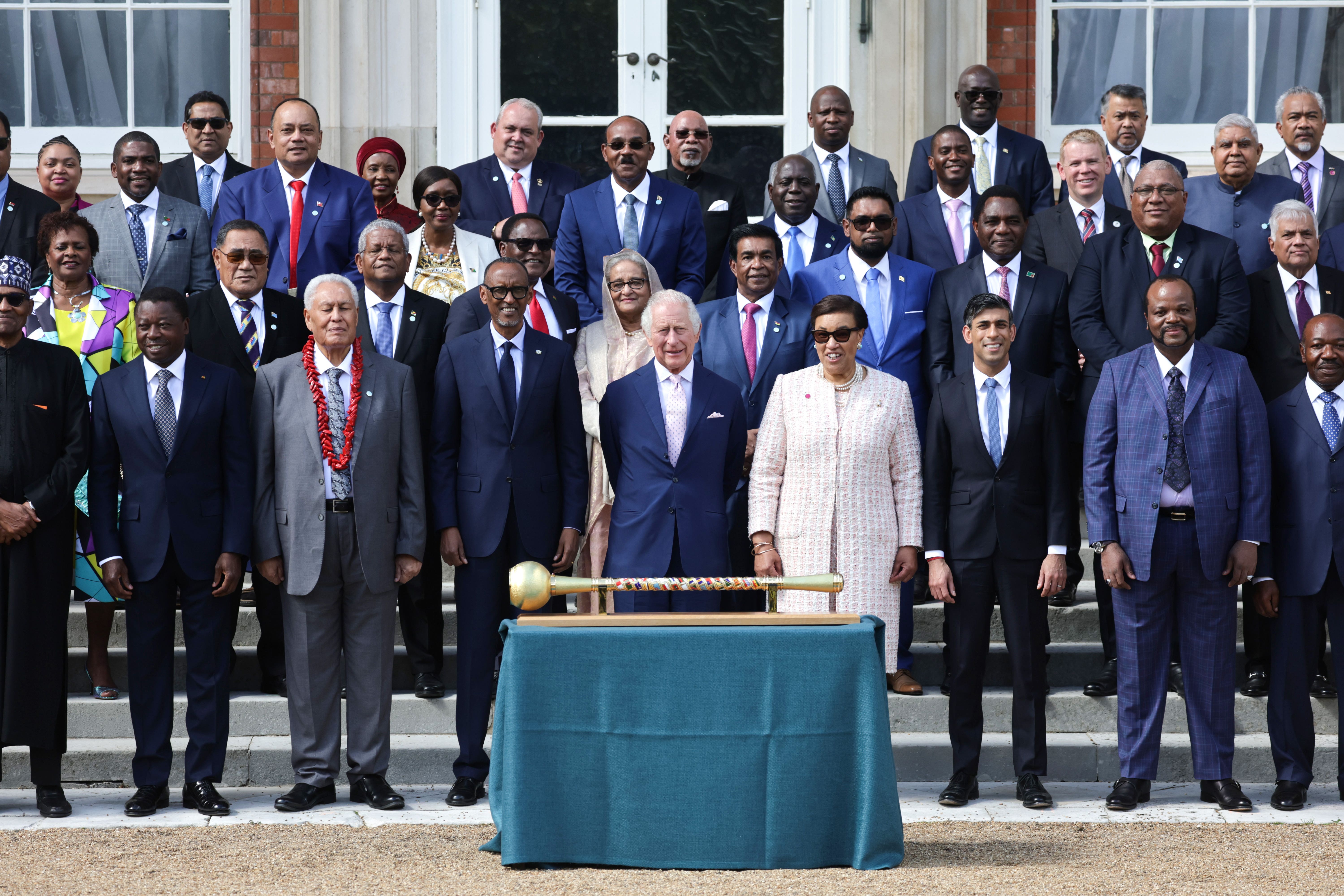St Kitts and Nevis PM: Country ‘not totally free’ while King is head of state
Prime Minister Terrance Drew wants a public consultation on whether the Caribbean nation should become a republic.

Your support helps us to tell the story
From reproductive rights to climate change to Big Tech, The Independent is on the ground when the story is developing. Whether it's investigating the financials of Elon Musk's pro-Trump PAC or producing our latest documentary, 'The A Word', which shines a light on the American women fighting for reproductive rights, we know how important it is to parse out the facts from the messaging.
At such a critical moment in US history, we need reporters on the ground. Your donation allows us to keep sending journalists to speak to both sides of the story.
The Independent is trusted by Americans across the entire political spectrum. And unlike many other quality news outlets, we choose not to lock Americans out of our reporting and analysis with paywalls. We believe quality journalism should be available to everyone, paid for by those who can afford it.
Your support makes all the difference.The prime minister of an eastern Caribbean country has claimed it is “not totally free” while the King is its head of state.
Saint Kitts and Nevis Prime Minister Terrance Drew told the BBC a public consultation on whether the Commonwealth realm nation should become a republic will start during his leadership.
Dr Drew, of the Saint Kitts and Nevis Labour Party, who won a snap election in August, has also called on the monarchy to apologise for its historic links to the slave trade, the BBC reported.
Buckingham Palace said Charles takes slavery “profoundly seriously”.
Dr Drew was among world leaders who posed in a group photograph with Charles after attending a Commonwealth reception at Marlborough House in London on Friday, ahead of the coronation at Westminster Abbey on Saturday.
Charles is sovereign of 14 Commonwealth realms in addition to the UK, while the Commonwealth as a whole is a voluntary association of 56 independent nations, almost all of which were formerly under British rule.
Ahead of the coronation, representatives from 12 Commonwealth countries joined forces to call on Charles to acknowledge and apologise for the impacts and ongoing legacy from British “genocide and colonisation”.
In early April, Charles expressed his support for the first time for research into the historical links between the British monarchy and the transatlantic slave trade.
Buckingham Palace said the royal household will help with the academic project by offering access to the Royal Collection and the Royal Archives.
Speaking in the capital Basseterre, Dr Drew told the BBC that the research was a “step in the right direction”.
“I think that acknowledging that… something wrong was done, acknowledging it and apologising for it, is a step in the right direction,” he reportedly said.
A Buckingham Palace spokesperson said: “This is an issue that His Majesty takes profoundly seriously.”
They cited a speech by Charles to Commonwealth leaders in Rwanda last year, when he said: “I cannot describe the depths of my personal sorrow at the suffering of so many, as I continue to deepen my own understanding of slavery’s enduring impact.”
The benefit of long life brings me the experience that arrangements such as these can change, calmly and without rancour
The spokesperson added: “That learning process has continued with vigour and determination since His Majesty’s Accession.
“As one part of it, the Royal Household is supporting Historic Royal Palaces’ independent research project that is exploring, among other issues, the links between the British Monarchy and the Trans-Atlantic slave trade during the late 17th and 18th centuries.”
On the references to republics, the spokesperson added: “His Majesty has long acknowledged the discussion about constitutional arrangements with the royal family.”
Saint Vincent and the Grenadines Prime Minister Ralph Gonsalves also said it was his desire to oust the King as the nation’s head of state after a failed referendum in 2009.
“It’s something that I’m hoping to see consummated, the severing of the umbilical cord between our country and the British monarch,” he told BBC Radio 4’s the World At One programme.
“King Charles knows that, he and I have discussed that in very amicable ways, but Saint Vincent and the Grenadines will remain in the Commonwealth.
“The King is understanding of the impulses of former colonial peoples to cut the links.”
In his Rwanda speech, Charles said: “I want to say clearly, as I have said before, that each member’s constitutional arrangement, as republic or monarchy, is purely a matter for each member country to decide.
“The benefit of long life brings me the experience that arrangements such as these can change, calmly and without rancour.”
In November 2021, Barbados became a republic, replacing the late Queen with a president as its head of state, and there has since been speculation that other countries, such as Jamaica, could follow suit.
The future role of the monarchy in the realms came under renewed scrutiny following the death of the Queen and controversies surrounding royal trips to Caribbean countries by the Prince and Princess of Wales and Duke and Duchess of Edinburgh last year.
William and Kate’s royal trip in March 2022 to Belize, Jamaica and the Bahamas was criticised over allegedly “tone deaf” images, which critics claimed were reminiscent of colonial days.
The controversial photos showed the couple, then known as the Duke and Duchess of Cambridge, shaking hands with Kingston crowds behind a mesh wire fence, and standing in the back of a Land Rover.
Belize locals also claimed they were not consulted about a royal engagement, and the couple were met with calls for slavery reparations from the monarchy in Jamaica.
Edward and Sophie also faced calls for reparations during their tour of Antigua and Barbuda, St Lucia, and St Vincent and the Grenadines in April 2022.